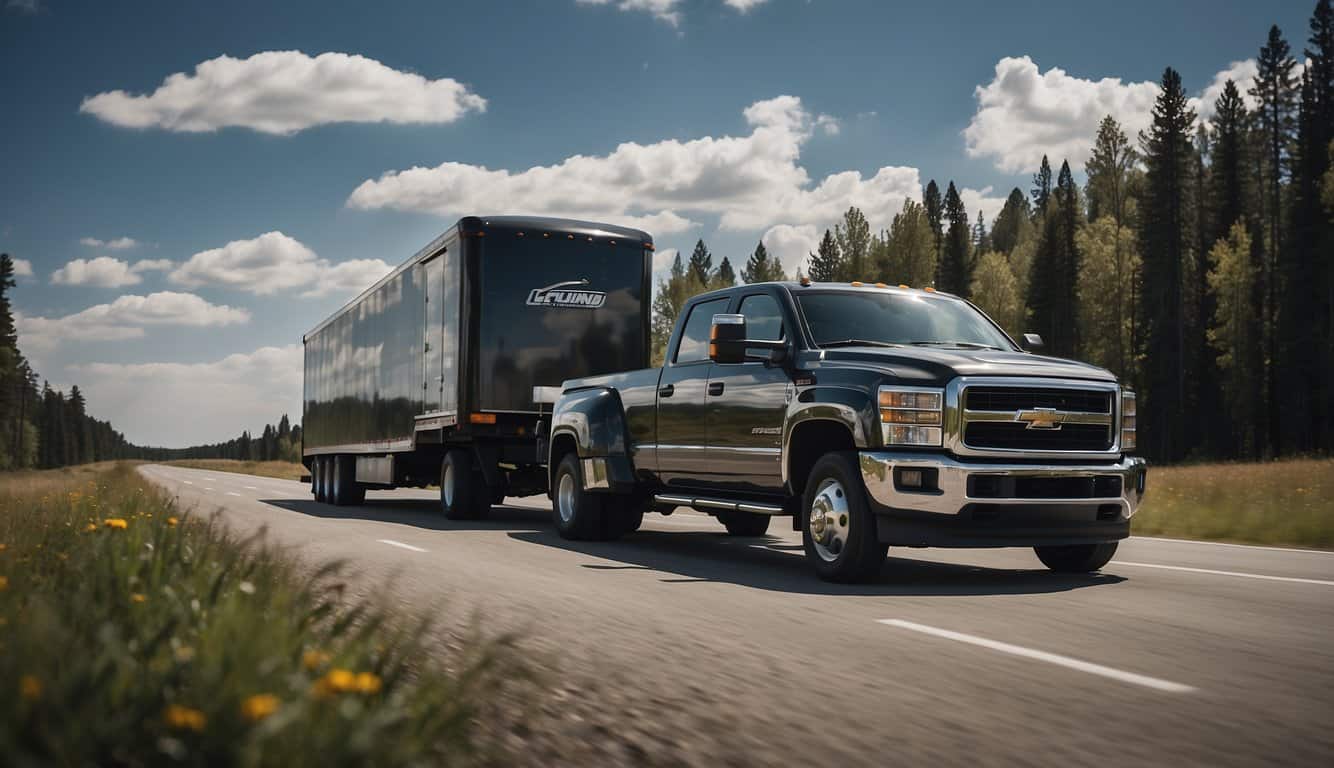Will a Leveling Kit Affect Towing?
When considering a leveling kit for your vehicle, you might wonder how it will impact your towing capabilities.
Leveling kits are designed to raise the front of a truck to match the rear, providing a more balanced appearance and better clearance for larger tires.
However, altering the factory setup of your vehicle can also change its towing dynamics. This is crucial if you regularly haul trailers or heavy loads.

By raising the front end, a leveling kit can shift the truck’s center of gravity, possibly affecting handling and the distribution of weight upon the hitch.
This shift may require adjustments in how you load your trailer and could potentially lead to increased wear on suspension components over time.
Understanding these implications is essential to ensure that your vehicle remains safe and reliable for towing after the installation of a leveling kit.
Maintenance is key after any vehicle modification, and that holds true with leveling kits.
Regular checks and balances of your truck’s suspension, alignment, and tire wear will help maintain optimal towing performance and vehicle safety.
Keeping on top of these aspects will allow you to enjoy the benefits of a leveled truck without sacrificing its functionality as a towing workhorse.
Key Takeaways
- A leveling kit can alter towing performance by changing vehicle dynamics.
- Adjustments may be needed in how you load and manage your trailer.
- Regular maintenance is crucial to maintain towing safety and vehicle handling.
Impact of Leveling Kits on Towing
When you install a leveling kit on your truck, it’s important to consider how it might affect your towing experience.
The kit alters your vehicle’s standard setup, which can have implications for suspension geometry, vehicle stability, and towing capacity.
Suspension Geometry Changes
Installing a leveling kit can shift the suspension geometry of your vehicle. This may result in an increased angle on your driveshafts and altered wheel alignment.
You might notice changes in handling and an increase in tire wear, which is something to be mindful of before you hitch up your trailer.
Vehicle Stability Concerns
Your vehicle’s center of gravity will be slightly higher with a leveling kit, potentially affecting stability when towing.
This can be especially noticeable during high-speed maneuvers or when you’re towing in windy conditions.
It’s crucial to drive cautiously and adjust your speed to ensure that you maintain control of your vehicle and your load.
Towing Capacity Adjustments
Although a leveling kit may give your truck a more aggressive stance, it doesn’t typically increase your towing capacity.
Your towing specs remain dictated by the manufacturer’s ratings. However, a proper setup with the right kit may help improve the towing experience by leveling the load, which can be particularly beneficial when hauling heavy rear-end loads.
Installation and Maintenance Tips
Installing a leveling kit can significantly affect your vehicle’s towing capabilities. Proper installation and regular maintenance are crucial to ensuring safety and performance.
Professional vs DIY Installation
When considering a leveling kit for your vehicle, you must decide between professional installation and doing it yourself (DIY).
Professional installation ensures that the kit fits perfectly, as they have the expertise and equipment necessary. However, if you’re mechanically inclined and have experience with vehicle modifications, a DIY installation could save you money.
Key Considerations for Professional Installation:
- Expertise in precise installation
- Access to specialized tools
- Time savings
Key Considerations for DIY Installation:
- Familiarity with your vehicle’s suspension
- Access to the necessary tools
- Willingness to invest the time to learn and apply
Routine Checks and Balancing
After installing a leveling kit, perform routine checks to maintain your towing performance and safety.
Regularly inspect suspension components and ensure that all hardware is tight.
Balancing your tires is equally important, as alterations to height can influence wear patterns and overall handling.
Routine Inspection Checklist:
- Check for loose bolts or components
- Inspect for signs of wear or damage
- Ensure your tires are correctly balanced
Remember that integrating a leveling kit alters your vehicle’s geometry, which can lead to faster wear if it is not regularly maintained.
Keep a close eye on your suspension and tire condition, particularly after any heavy towing jobs.
Frequently Asked Questions
In this section, we’ll answer common questions regarding how leveling kits might affect towing.
Does installing a leveling kit impact the towing capacity of a vehicle?
When you install a leveling kit, your vehicle’s towing capacity typically remains unchanged. The towing capacity is determined by the manufacturer’s design and specifications, not the ride height.
Can the use of a leveling kit influence fuel efficiency during towing scenarios?
Yes, a leveling kit can alter your vehicle’s aerodynamics, potentially reducing fuel efficiency due to increased wind resistance while towing.
Be mindful that the change is often minimal, but it’s worth considering for long trips.
How does adding a lift kit change the payload of a truck?
A lift kit’s primary purpose is to increase clearance, not payload capacity. Your truck’s payload is defined by its chassis strength and suspension design, which are not affected by a lift kit.
What should be considered when towing with a truck that has a 3-inch lift?
With a 3-inch lift, you should adjust your hitch to ensure that your trailer remains level.
It’s essential to maintain proper weight distribution to avoid trailer sway and ensure safe towing.
Are there any drawbacks to using a leveling kit when it comes to towing?
Leveling kits can change your vehicle’s center of gravity and potentially affect handling while towing.
You might experience a slight decrease in braking performance or increased steering sensitivity.
What constitutes the best lift kit choice for towing purposes?
For towing, choose a lift kit that maintains your vehicle’s factory suspension geometry.
Kits that include upgraded shock absorbers can also help maintain a smooth ride under towing conditions.
